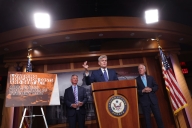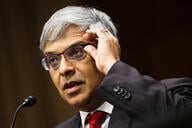You have /5 articles left.
Sign up for a free account or log in.
Institutions that have so far experimented with massive open online courses have done so to improve the quality of education both in face-to-face courses and distance learning, even though many faculty members remain unconvinced that students taking MOOCs should be able to earn credits, a new survey by the American Council on Education and InsideTrack suggests.
The survey claims "the level of alignment it uncovered between administrators and faculty on the motivations and considerations for pursuing MOOCs" as one of its highlights, but all of the 108 faculty respondents were actively involved in teaching MOOCs. Still, the survey bills itself as the largest of its kind ever conducted.
The demographics may explain the overwhelming positivity found among faculty members: 93.5 percent of instructors thought teaching a MOOC was beneficial to them personally or professionally, and 78.7 percent were likely to recommend teaching one to their colleagues. While only a fraction of the institutions surveyed -- 5.7 percent -- offer academic credit for completing MOOCs, 35.6 percent of faculty members said students should be able to take the courses for credit.
“I'm more convinced than ever about the potential for MOOCs to serve students who would otherwise never have the opportunity (e.g. the teenage girl in Pakistan who took and passed my advanced computer science class),” one instructor said.
Inside Higher Ed's survey of faculty views on technology found a large gap between instructors who have taught online courses and those who haven't. Among the latter group, 15 percent of those surveyed said they thought online learning could produce outcomes similar to face-to-face courses. In comparison, one-third of faculty members with online teaching experience said the same.
The survey also gathered more anecdotal evidence from high-ranking officials at nine universities that have experimented with MOOCs. Generally speaking, the survey found administrators see MOOCs as a means to showcase the institution to a broader audience and improve faculty teaching methods.
“The residential experience is an important part of our future, but there’s a lot technology can do to enhance the educational experience on and off campus,” one administrator said. “MOOCs are one of many ways we’re exploring for bringing technology to the classroom.”
Faculty members share some of the same sentiments. Asked to identify their own priorities about MOOCs, 68.5 and 58.3 percent of instructors labeled increased access and more effective online pedagogy, respectively, as “very important.”




